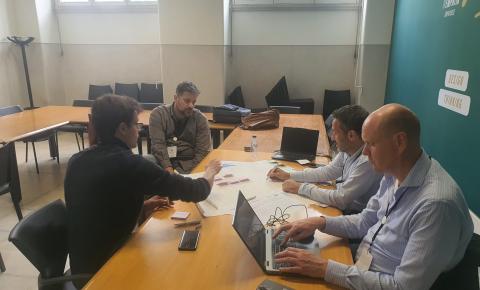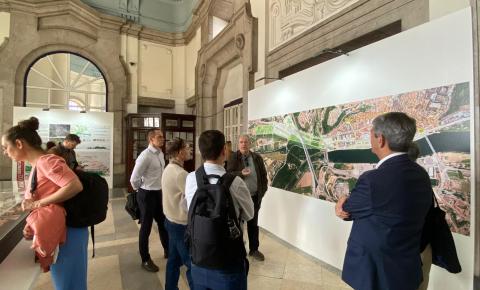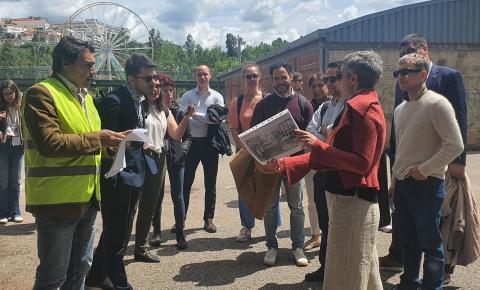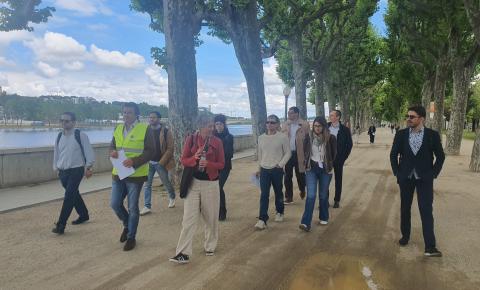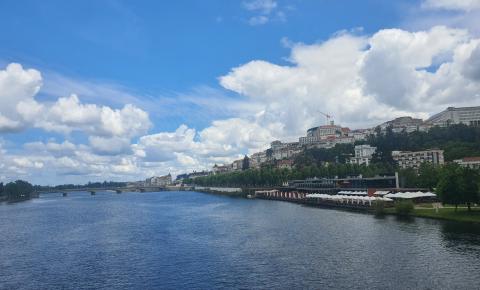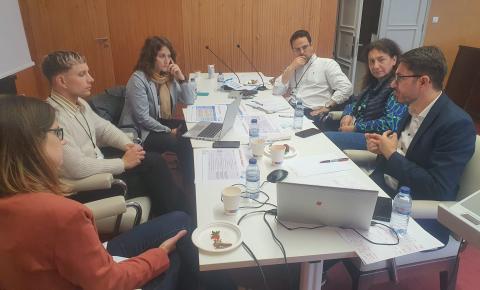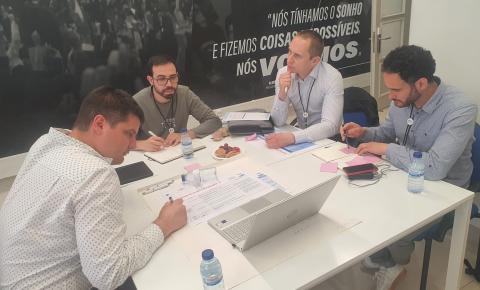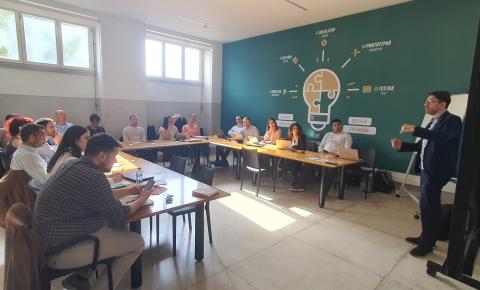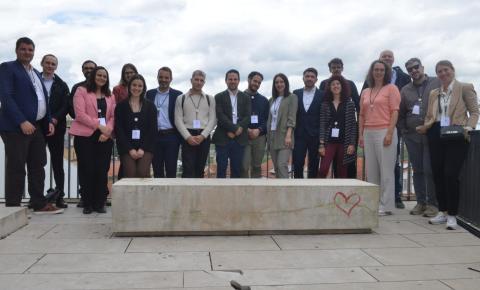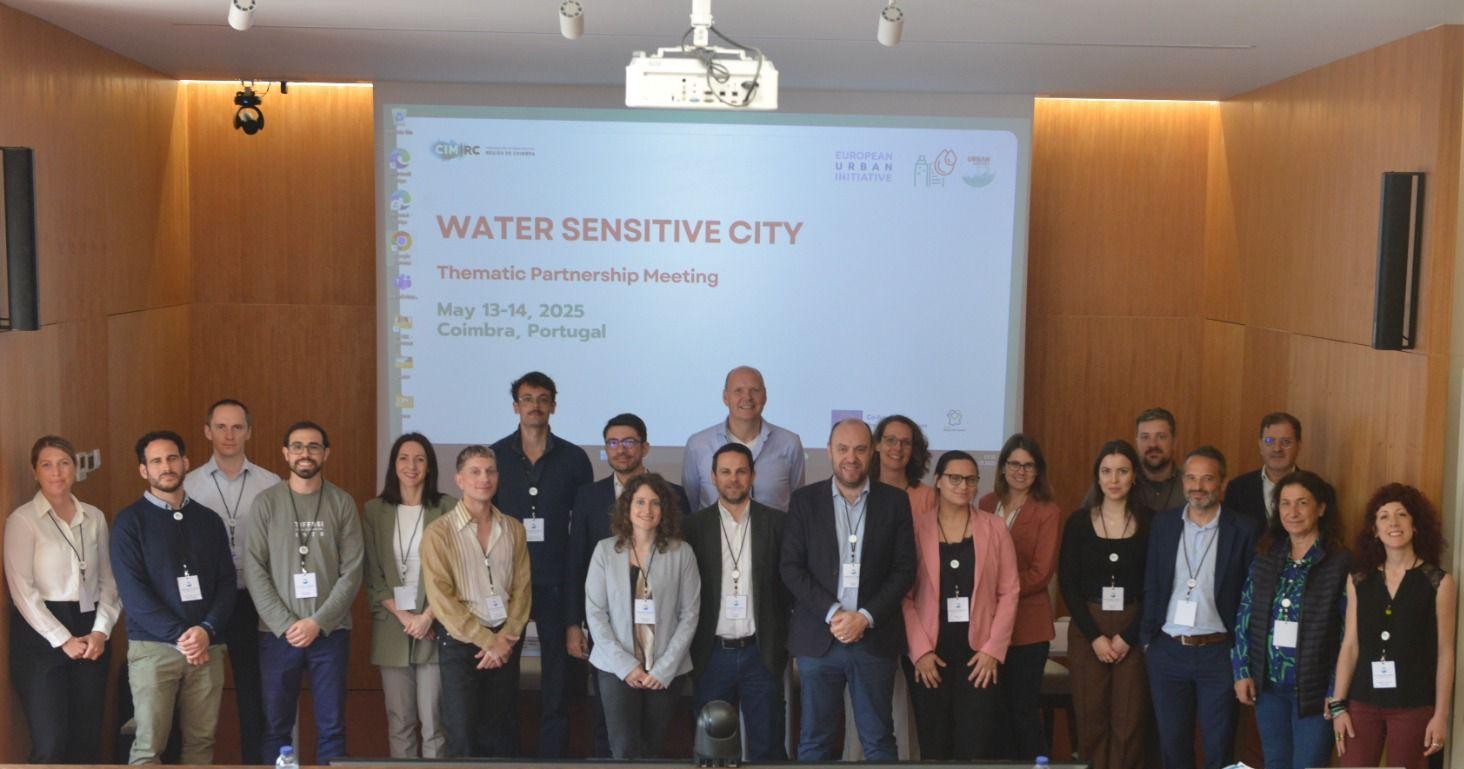
The Water Sensitive City Partnership meets in Coimbra to advance EU water resilience
The meeting was hosted by the coordinators of the partnership, the Intermunicipal Community of Coimbra (CIM-RC) at the Student Hub of the University of Coimbra. During the two days, the partners focused on three key dimensions: refining the thematic focus of the Partnership, identifying concrete steps to boost its impact, and building a strong network.
In his welcome message, Jorge Brito (CIM-RC) underlined the urgency of addressing local water-related challenges, such as floods, drought and socio-cultural issues, reaffirming the Coimbra region’s commitment to both local action and European cooperation for water resilience. The University of Coimbra is also directly involved in innovative projects to advance water resilience and blue economy.
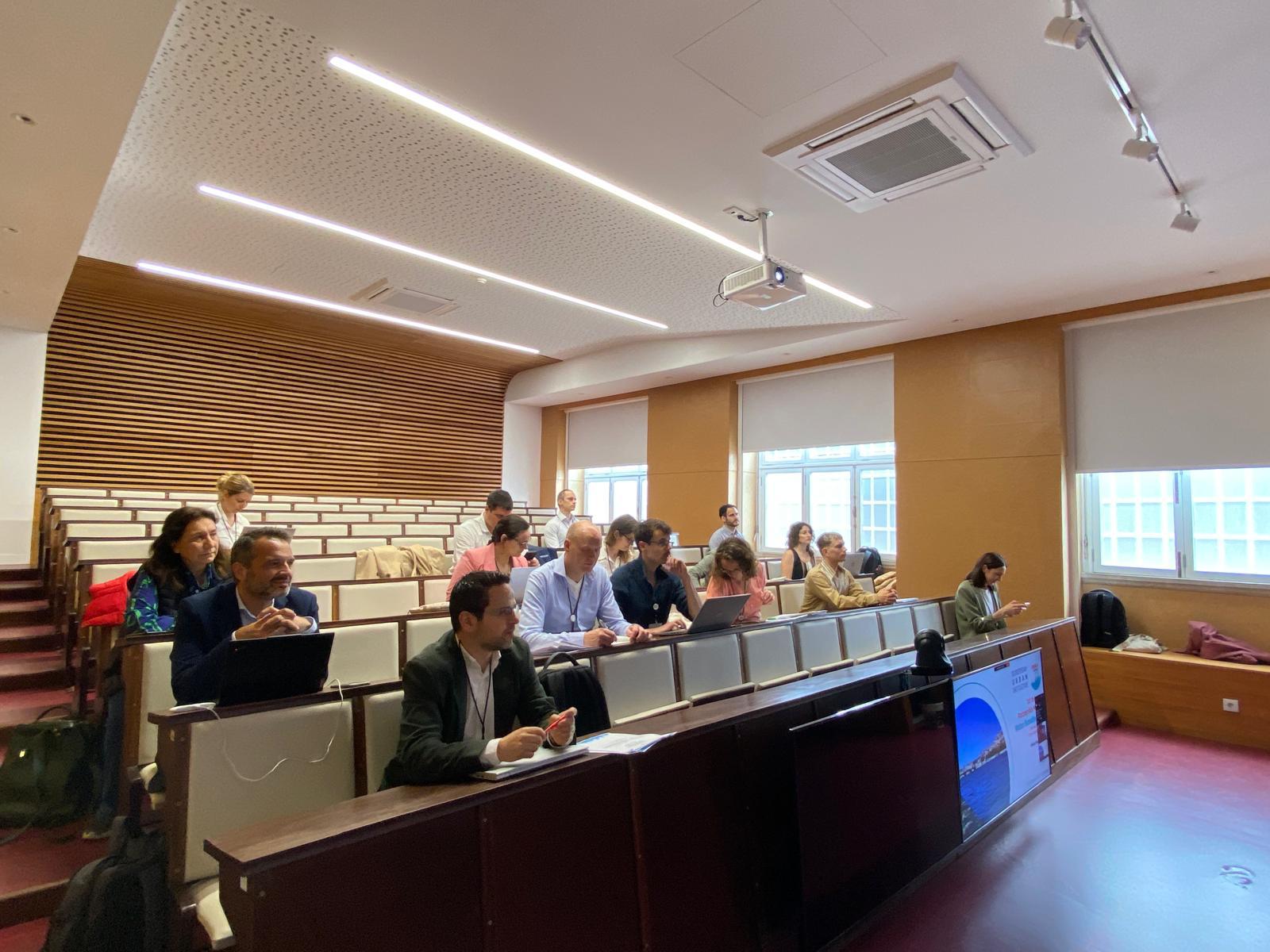
Sharing insights and inspiration
The first day of the meeting featured a series of knowledge-sharing presentations, with contributions from Marta Magalhães (EUI Urban Contact Point for Portugal) who highlighted key opportunities within the EUI, and Andrea Rubini (Director of Operations at Water Europe), who shared the ongoing involvement of Water Europe in the Water-Oriented Living Labs and the Water Knowledge Europe event.
Further insights came from Marino Cavallo from Nuovo Circondario Imolese (Bologna), and Pedro Carneiro from the Lisbon Metropolitan Area who presented the actions and practical guidance from the Greening Cities Partnership. The morning session also offered the opportunity to learn about the national and local approaches to water resilience, with inputs from Nuno Bravo (Portuguese Environmental Agency) and Jorge Brito, illustrating how national water strategies, nature-based solutions and local engagement can put the Water Sensitive City concept into practice.
Collaborative working sessions: what will the WSC Partnership focus on?
Throughout the rest of the day, the partners split into working groups to refine the thematic focus of the Partnership, starting with its contribution to the three Urban Agenda pillars: better knowledge, better regulation, and better funding. Through targeted exercises, they identified the expected impacts and outputs, assessed their capacity for implementation, and explored potential future actions. The four thematic areas of the Water Sensitive Cities Partnership include integrated water management, water-sensitive urban planning and investments, smart water operation and digital innovation, as well as governance, awareness and financing dimensions.
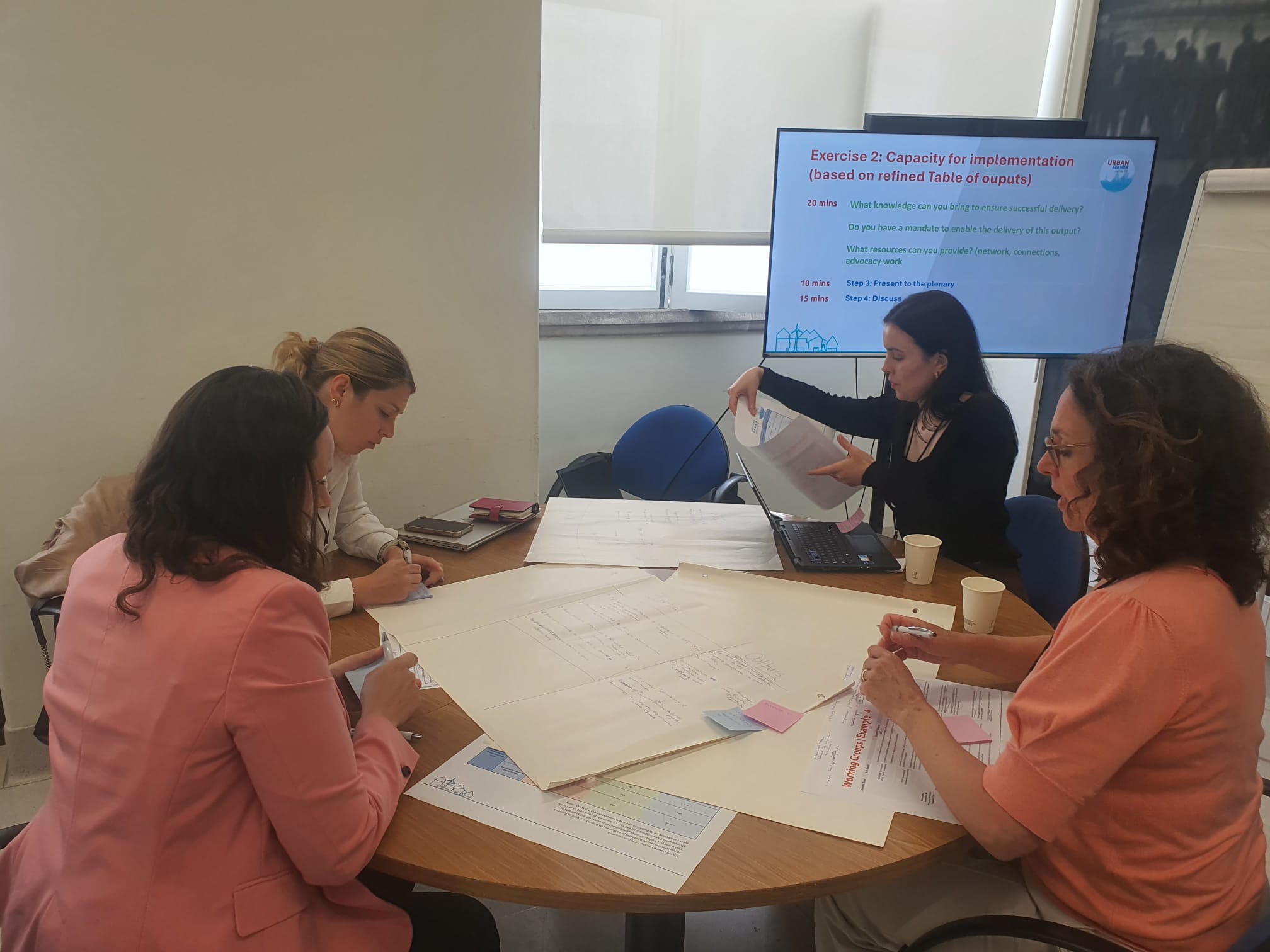
The main topics emerging from the workshops revolved around the need to support smaller municipalities, mainstreaming nature-based solutions, as well as the value of multi-level, cross-sectoral and data-driven governance, standardised indicators, and digital tools. Promoting public awareness on the topic of water was also recognised as key to enabling effective, water-sensitive urban development.
The day concluded with a wrap-up session, where working group leaders and co-leaders shared the results and conclusions in a plenary format. Partners highlighted the need to strengthen local capacity, align with EU policies, and enable more effective implementation of water-sensitive solutions.
Boosting the impact and shaping the urban policy agenda for WSC
During the second day, Alexandru Matei (EUI) shared a set of lessons learned for effective design and delivery of actions from the other Thematic Partnerships of the Urban Agenda for the EU. These include focused, clearly defined, and adaptable actions, reserving sufficient time for implementation, finding the right balance between the knowledge, regulation and funding pillars and building synergies with other Partnerships.
This was followed by a participatory session on the public consultation for the new EU Agenda for Cities. Partners discussed the core messages the WSC Partnership would like to contribute, with a particular focus on water as a transversal urban priority. Finally, a site visit was organised with the contributions of Prof. Alfeu Sá Marques (University of Coimbra), as well as Santos Costa and Joana Sobral (Coimbra City Council).
Looking forward: next steps for the Water Sensitive City Partnership
The partnership will continue to work on its Orientation Paper, gathering input from all partners involved, which will be presented during the next Directors General Meeting for Urban Matters (DGUM), to be held on 5 November in Copenhagen.
